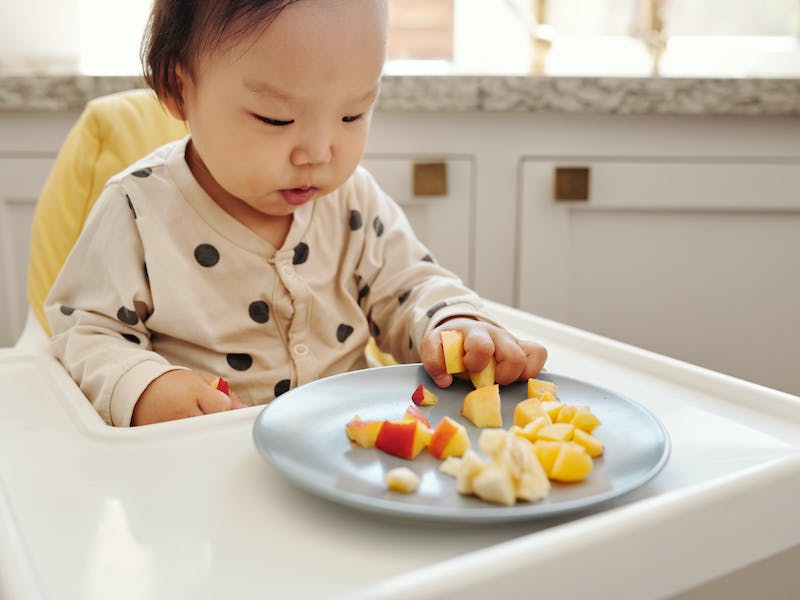In 2023 we welcomed our first child, a baby girl. We are a vegan couple and have decided to raise her as a vegan until she is old enough to understand and make her own choices. Of course, that means being super mindful of the foods and nutrition that she gets, ensuring that she is getting everything she needs to grow up to be strong and healthy. If we only eat chips all day that’s on us, but we are now responsible for a little person and she deserves to be properly nurtured.
Raising vegan children can be a fulfilling journey that instils values of compassion, health, and environmental awareness from a young age. It also comes with its own set of considerations and challenges. Whether you’re a seasoned vegan family or just starting on this path like we are, these 7 top tips will help you navigate the ins and outs of raising vegan children while ensuring they thrive physically, emotionally, and socially.
1. Educate and Empower:
Everything comes down to education when it comes to encouraging your children to consider any sort of morals, religion or lifestyle. Teach your children the reasons behind your family’s choice to follow a vegan lifestyle. Explaining the importance of compassion for animals, protecting the environment and promoting health through plant-based foods will ultimately empower them to make informed choices and understand the impact of their food decisions.
2. Provide Balanced Nutrition:
One thing that plays on my mind every time I make our baby girl a meal is ‘what nutrition is missing’ and ‘how can I add something extra to this dish’. Sometimes that is as simple as sprinkling some seeds in her porridge or putting peanut butter on her toast, but little teaks make a big difference when you need to make sure that your children receive all the essential nutrients they need. Focus on a varied diet rich in fruits, vegetables, whole grains, legumes, nuts, and seeds. Pay special attention to sources of protein, iron, calcium, vitamin B12, and omega-3 fatty acids, and consider supplements if necessary. We have the VEG 1 Baby & Toddler supplement which we give bubs every morning.
3. Lead by Example:
Be a positive role model for your children by demonstrating a love for plant-based foods and making healthy choices yourself. Since becoming parents we have tried to cut down on the junk and eat more homemade, healthy dishes as we now share our meals with bubs. I look forward to cooking and enjoying delicious vegan meals together as a family and involving her in meal planning, grocery shopping, and food preparation to foster her interest and confidence in vegan cooking as she grows.
4. Address Social Situations:
Although veganism and plant-based lifestyles are becoming more mainstream these days, I think it is key to prepare your children to navigate social situations where their veganism may be questioned or misunderstood. Arm them with age-appropriate responses to common questions and concerns, and encourage open communication about their feelings and experiences. Teach them to respect others’ dietary choices while standing firm in their own beliefs.
5. Foster Connection with Nature:
I really can’t wait until our baby girl is old enough to get more involved in the great outdoors. She’s not yet mobile enough to take part but we intend to encourage her to develop a deeper connection with nature and the world around her. We plan to better explore parks, gardens, and natural habitats, and engage in activities like gardening, hiking and animal sanctuary visits to foster empathy, appreciation, and respect for all living beings. My husband and I are involved in the Scouts movement, so I am sure she will spend many an hour camping, walking and enjoying the world around her.
6. Stay Informed and Supportive:
Staying informed about vegan nutrition is my key concern along with discovering parenting resources, and community support networks to ensure you have access to accurate information and guidance along your journey. Seek out like-minded families, online forums, and local vegan meetups to connect with others who share your values and experiences.
7. Be Flexible and Understanding:
As parents, we will need to be able to recognise that raising vegan children may require flexibility and adaptation as they grow and their dietary preferences, nutritional needs and personal values evolve. Listen to your children’s feedback and preferences and be willing to adjust your approach to meet their individual needs while staying true to your family’s values.
Raising vegan children is an opportunity to nurture compassionate, conscious, and healthy individuals who make positive choices for themselves, animals, and the planet. By providing education, balanced nutrition, positive role modelling, social support, and a deep connection with nature, you can empower your children to thrive as proud little vegans in a world of infinite possibilities. Here’s to raising happy, healthy, and compassionate vegan children!















Subscribe and Follow